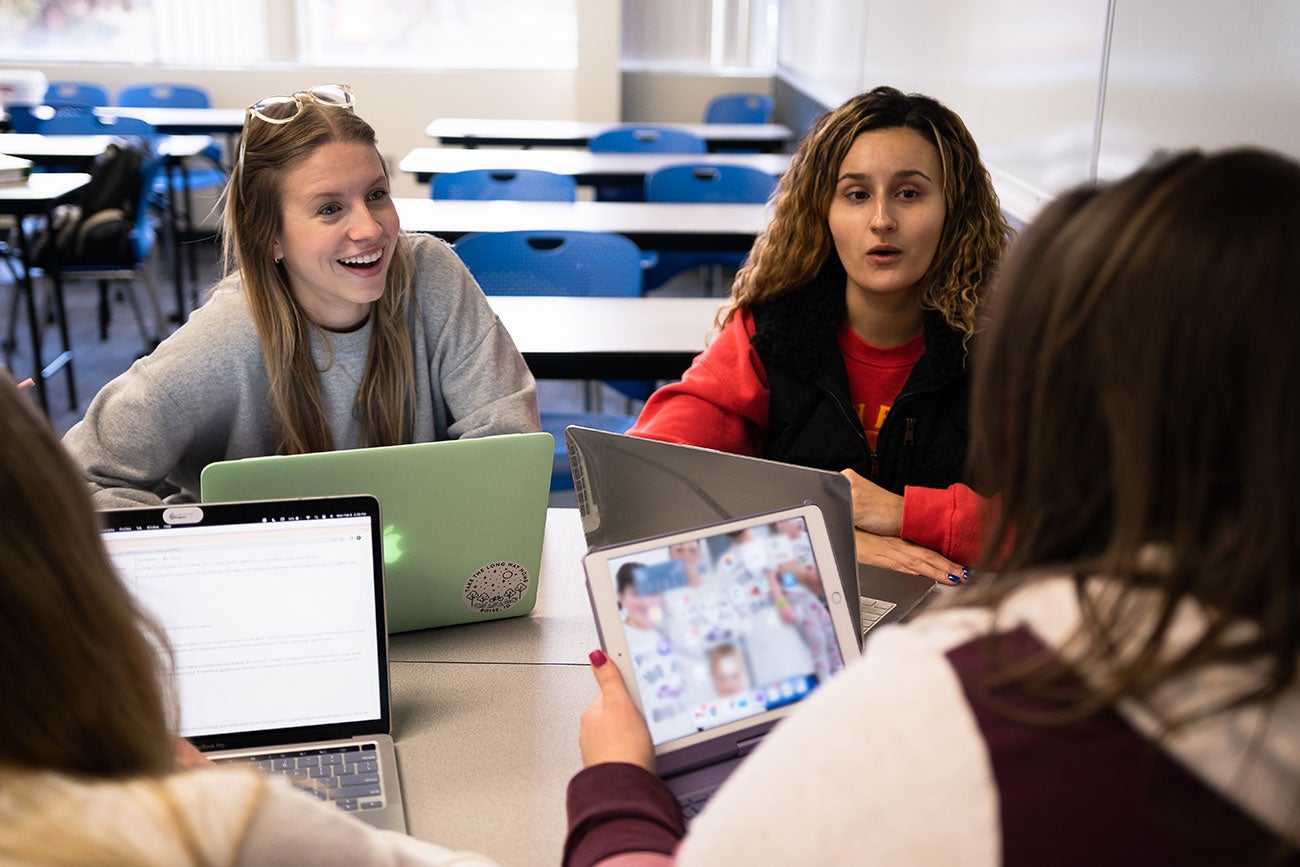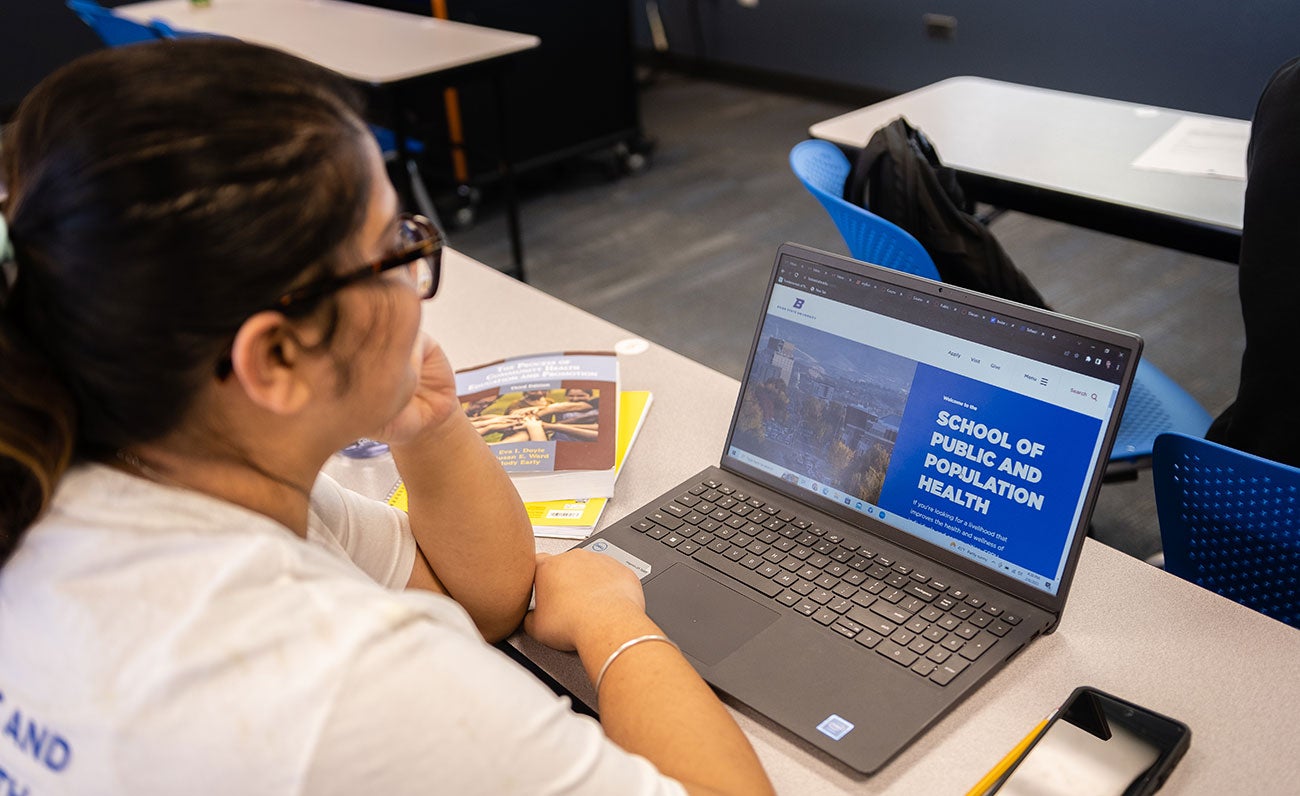
Come autumn, students in the School of Public and Population Health — and employers across the region and country who hire College of Health Sciences Broncos — will reap a windfall of crisp new classes and relevant new approaches.
Boise State, and COHS, routinely refresh and reimagine programs and classes, so the fine-tuning isn’t unusual. And talks about what to change, and where, and when, had been in the talking stage as far back as about 2019, according to Jaime Sand, a professor in the School of Public and Population Health who led the refresh in her role as associate director for student engagement and impact.
But changes in population health fields, employee demographics, the growth of the university, college and school — and a global pandemic — combined to make this revamp more than just a general sprucing up — and the buzz already has begun among faculty members and advisers.
What Sand and the team largely have done is build out in areas where health care has quickly evolved, so in areas such as data analytics and use, community health, prevention and wellness. COHS students, many of whom go on into areas of medial specialty, traditionally leave undergraduate studies well-prepared for clinical futures. Some of the work Sand and the curriculum committee members have done will, among other things, shore up skills and knowledge for professionals already working in public health.
“We’ve tried to be more intentional, so students are well-versed in all of the things that impact health, beyond disease and disability,” Sand said.

New areas of focus, including new course requirements, include mental health and the social determinants of health. Redundant content has been trimmed, and courses have been tailored for different paths through the school. And for working professionals taking part in the online public health degree, there is now a four-certificate stack of specialty coursework that are embedded into the bachelor’s degree or can be completed on their own. These certificates cover the foundations of public health, health and human behavior, evidence-based public health and community-driven health solutions, all areas of interest to employers from government agencies to hospitals and health systems and everywhere in between.
And because COHS students often come to a program within the school later than they might with, say, nursing, or kinesiology, the curriculum changes come with an added bonus: The new programming is meant to get participants closer to their degrees with the need for fewer courseload adjustments.
“There’s even more flexibility than we had before,” Sand said.